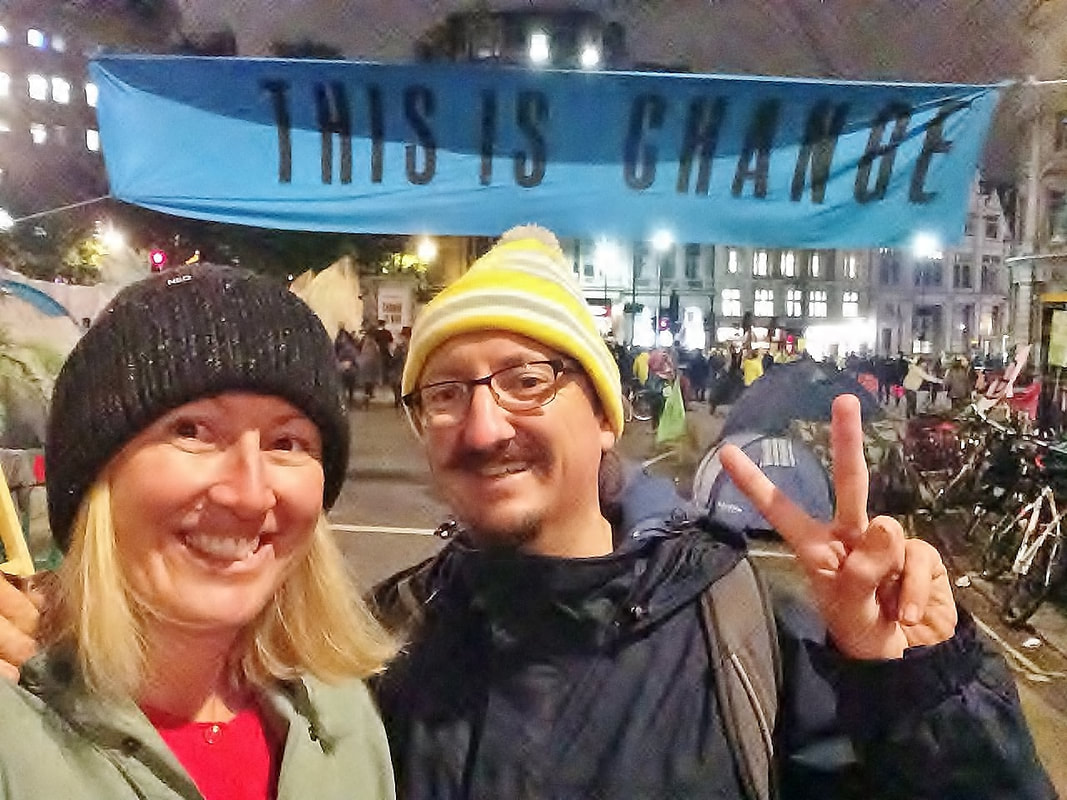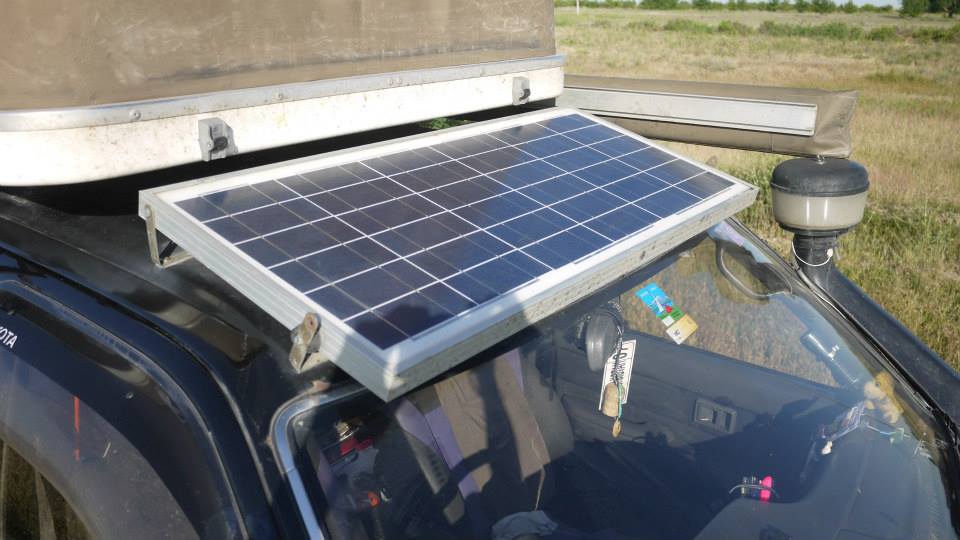|
The Climate Crisis - is it Over for Overlanding? It’s been four years since we arrived back in the UK following 858 days of overlanding through 52 countries. Our original plan on returning was simple; get jobs, earn money, hit the road again. We did actually stay on-track for this plan, after 2.5 years we were in a position where we could have followed our dream of continuing our travels and sailed west to The Americas. However, something changed both in the world and in us that meant at the very least we had to put our adventure ambitions on pause for a while longer. News of the escalating climate and ecological crisis was making headlines… the depressing facts were old news but the fact a new movement had put them in mainstream media and on the political agenda was exciting, motivating and filled us with the love and rage that Extinction Rebellion was fuelled on. Having studied and worked in Environmental Science and Conservation for over 20 years, dealing with planet destruction was nothing new. In fact, the frustration and hopelessness was a huge motivation for getting out and seeing the world's wild places… while they were still there. The establishment of this new climate movement gave us something that we had both lost… hope. In April 2019 we joined a movement that would replace overlanding as our focus and main objective in life. The science was terrifying and the urgency clear- act now or there simply wouldn’t be a world left to explore. There is no overlanding on a dead planet. For the last 12 months we have dedicated our time and energy to climate activism; telling the truth about the severity of the climate and ecological crisis and putting our words into action. So, the question still burns (along with Australia, the Amazon and now the Arctic)… can we ever justify a return to overlanding? This isn’t a new concern for us. Almost 9 years ago I wrote a blog titled "The Carbon Cost of Adventuring" which, as an environmentalist, addressed many of these concerns (and criticisms that I faced). In conclusion, we predicted (through some carbon producing sums) that we would produce 62% less CO2 per day adventuring compared to our previous static lifestyle, indicating that our planned adventuring lifestyle was more sustainable than living in a house in the UK. Sustainability choices have always been a priority for us. At the start of our relationship we both opted against having children, a decision that was primarily for environmental reasons (plus a few unconventional life choices!). Comparatively, although living car-free would save jointly 4.8 tonnes of CO2 equivalent per year, living child-free (based on a 2-child family) would save an average of 117.2tonnes of CO2-equivalent emissions per year. This isn’t a game of trade-offs though, carbon budgets are not something to be played with - put simply, if we can reduce our carbon footprint then we have a moral duty to do so. Living in a vehicle is actually a sustainable lifestyle; our power came from a combination of electricity generated by the engine and a solar panel, our food was always bought locally, we didn’t fly or commute to a job, we lived incredibly simply with very few possessions and couldn’t afford the money or space to acquire new things. Yes, the driving between our ‘home camps’ was fuelled by Diesel and we covered a LOT of miles in total over 4 years but we generally only drove an hour or two when we moved. Our transport was also our home, not just a means of getting around. To further our climate commitment we both switched to a plant-based diet three years ago and for the last 13 months have undertaken a ‘no new clothing’ pledge. We strive to minimise our consumption of everything from minimising car use and re-using and mending to limiting laundry frequency and food waste. We have been truly fortunate that family, friends and fellow ‘rebels’ have loaned accommodation space or shared their homes with us throughout this period, generosity we will be eternally grateful for as it has allowed us to pursue our activist ambitions. At the same time we have invested in upgrading Bee-bee (who is in storage and not a daily driver) to enable her to run slightly more efficiently. Andy has lovingly replaced old tyres and realigned the wheels, upgraded the cooling system (including an electric fan), repaired all the oil leaks and generally given the engine a major service and overhaul. Andy did extensive research when he wrote a blog on "Electric VS Diesel" in which he concluded that it was better for us to travel another 2 years in the vehicle we already had than buy a new electric vehicle - 50% of the carbon cost of a car is locked-in to the manufacturing and production - It wasn’t an option for us anyway due to the high cost. ‘Mend and make do’ in this instance was preferable to investing short-term in greener technology. Ultimately, we’ll be striving for a car-free existence in the future and our next house move will see us shift to complete reliance on public transport in the UK. To say that our choices have been purely climate-based when it comes to returning to the road would be untrue; our niece Daisy was just 6 weeks old when we arrived back from SE Asia and the last 4 years have been amazing to spend time with her and the rest of our family. New work experiences, friends, festivals and gigs have also kept us sane amongst the reality of a planet heading for extinction.
With climate tipping points and feedback loops rapidly being reached, we really are within the last 12 months to make any real difference to the mass extinction we are currently hurtling towards. It’s hard to say how we’ll feel in a years’ time, we still have a strong desire to see South America but a major consideration for us will always be that our love for overlanding the planet… doesn’t cost the earth.
0 Comments
|
Archives
July 2020
Categories
All
|
Proudly powered by Weebly



 RSS Feed
RSS Feed